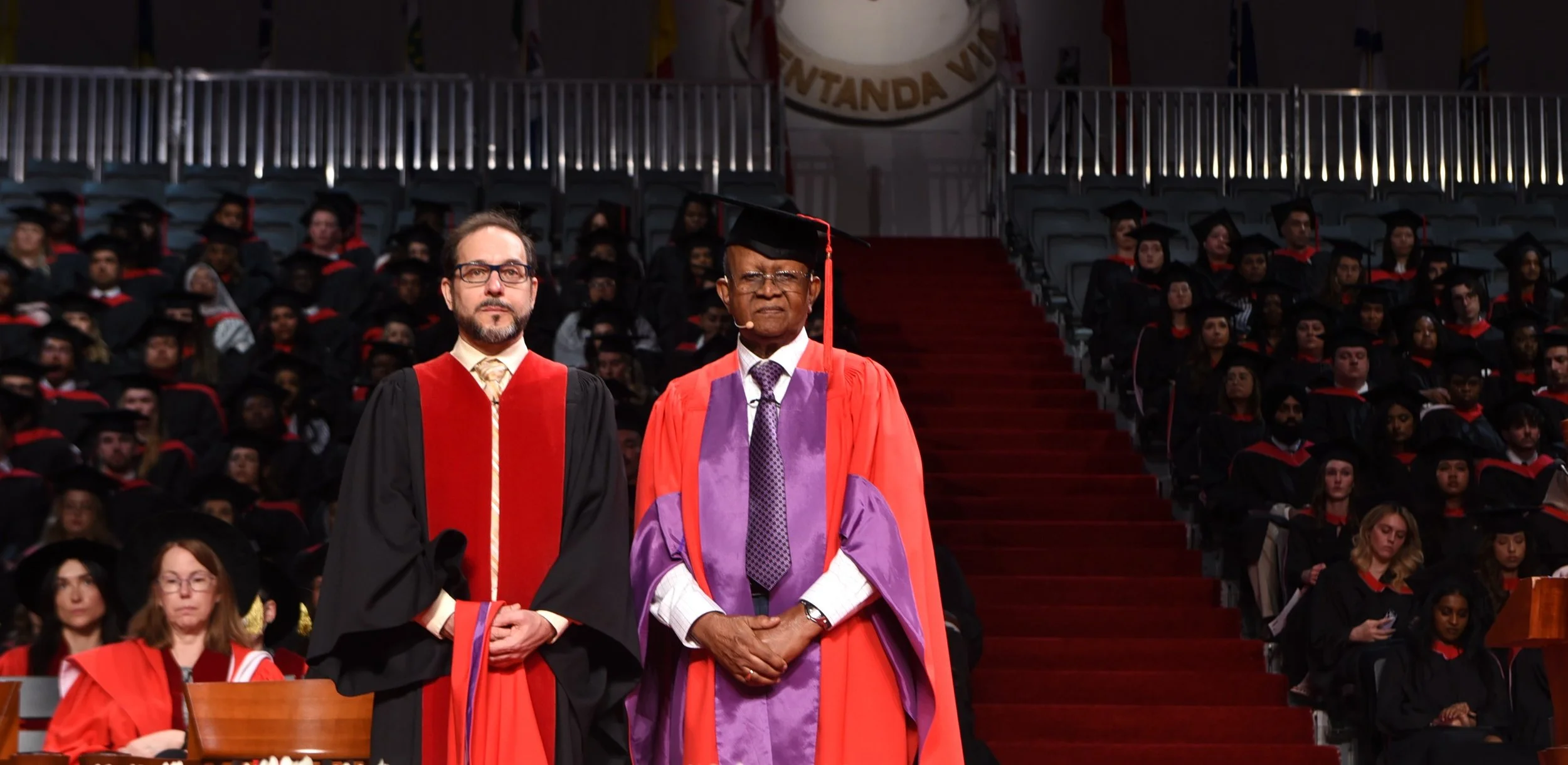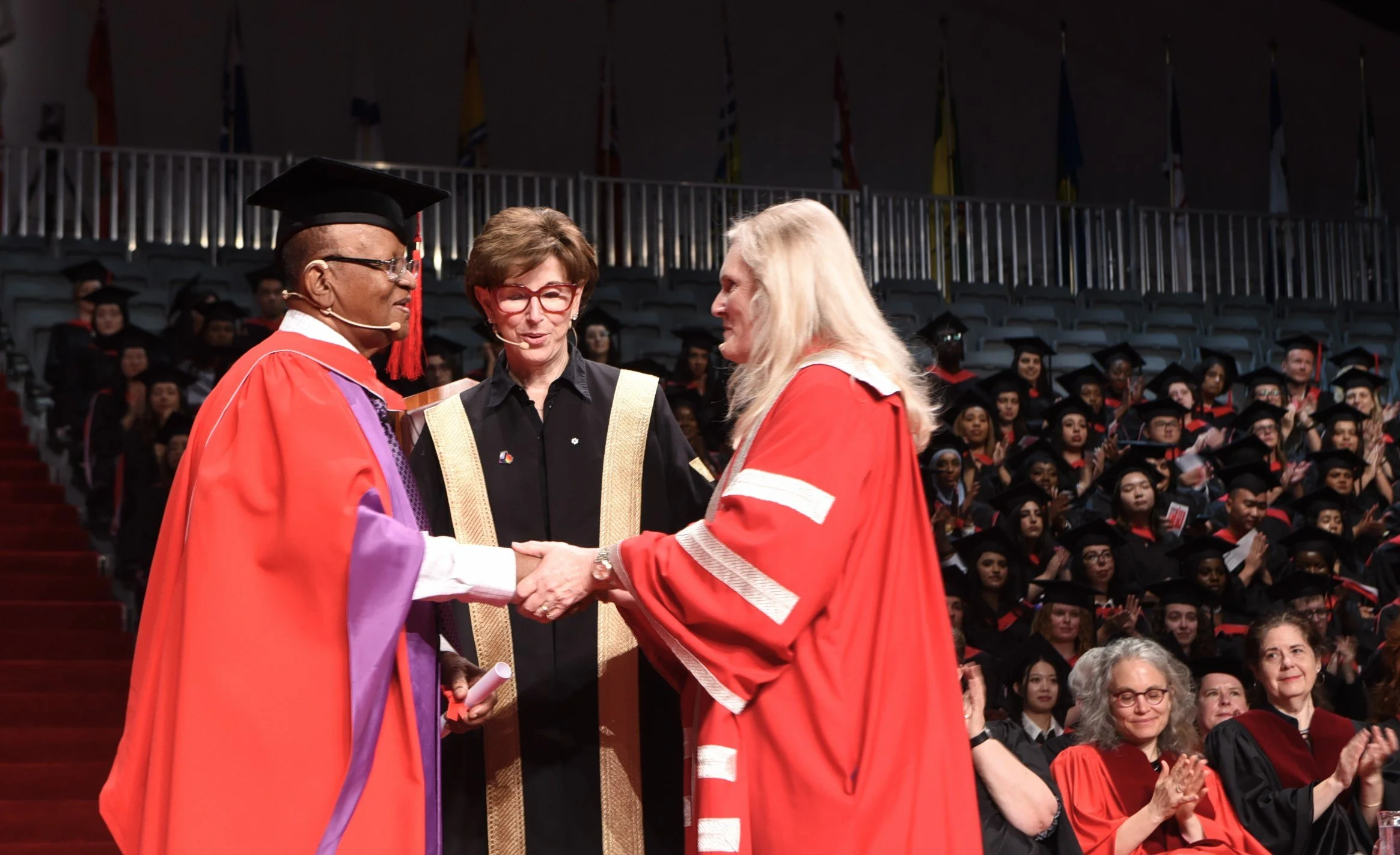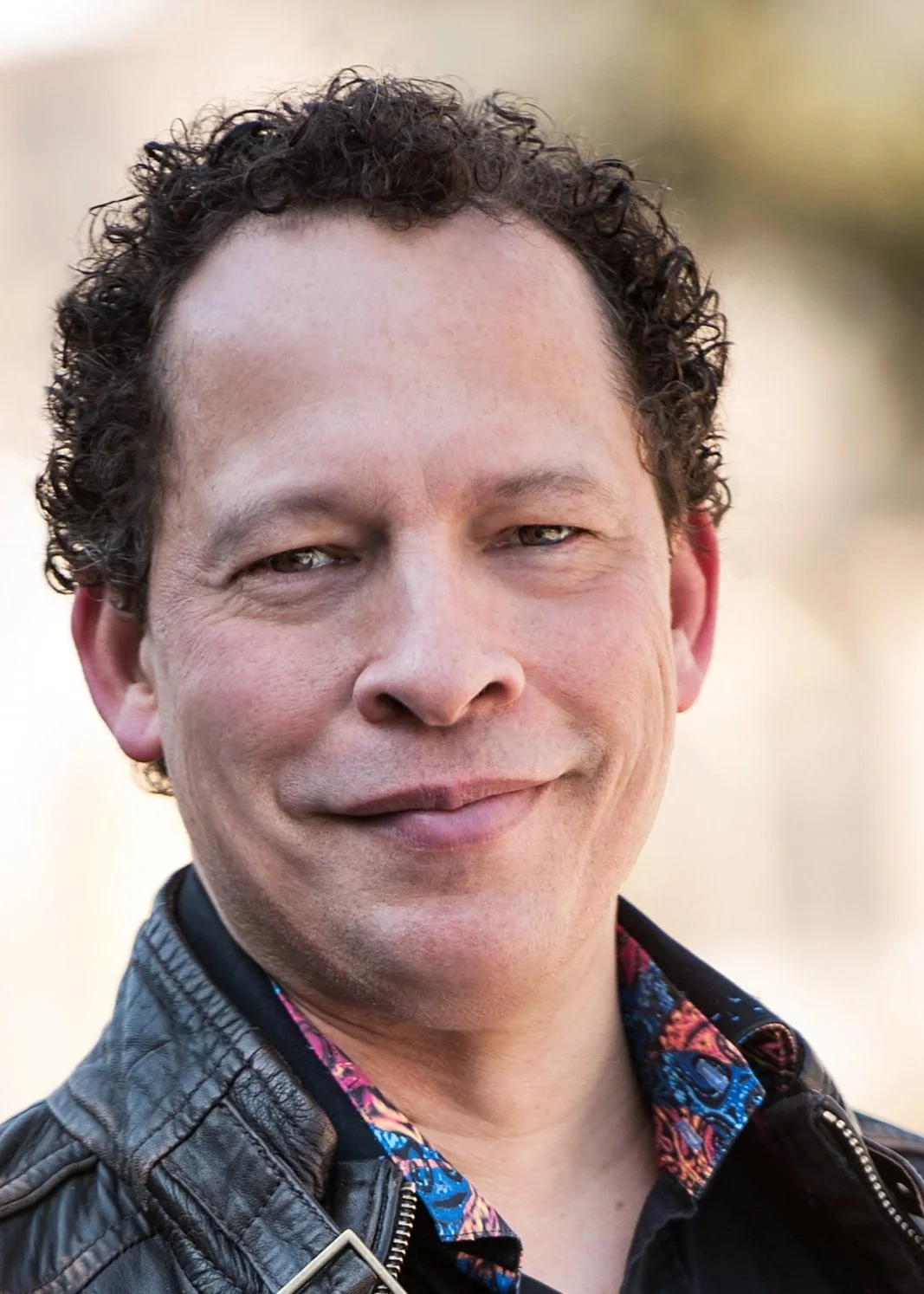York University honours Share Publisher Arnold Auguste
July 3, 2024
Arnold Auguste usually doesn’t take chances.
His two biggest risks, however, have paid off handsomely.
Without family to lean on, Auguste came to Toronto from Trinidad & Tobago in 1970 at age 24. He spent a few days at the YMCA, then located at 40 College St. which is now Toronto Police headquarters, before sharing a Manning Ave. rooming home with an acquaintance who attended the same church with him in Port-of-Spain.
After working in a garment factory, studying Journalism at what was then Ryerson Polytechnical Institute (now Toronto Metropolitan University) and being fired from Contrast community newspaper and Spear magazine, he was offered a Proofreader opportunity at a mainstream publication in 1977.
The late Al Mercury arranged the interview with a newspaper executive with whom he had a good relationship.
Wanting to serve his community, Auguste – who wrote his first column in September 1972 for Contrast -- turned down the offer and started Share in April 1978 out of his Eglinton Ave. W. apartment which was firebombed after the third issue.
Not long after the paper’s launch, the two newspapers that fired him ceased publishing.
“I never wanted to own a newspaper, but if I was to continue working in the Black community, I did not see another option,” Auguste remarked in his convocation address at York University which conferred an honourary Doctor of Laws degree on him on June 20. “…I didn’t go to school just to be a Journalist. I wanted to be a Journalist in the Black community. I felt the stories needed to be told and they needed to be told well.”
Retired educator and community activist Lennox Farrell (r) travelled from Niagara where he resides to attend the convocation ceremony (Photo by Ron Fanfair)
He reminded the graduates, the majority of whom started their university education during the COVID pandemic, that they have been educated by one of the top universities in the world.
“You are ready to take your place among the movers and shakers,” said Auguste. “Accept the challenge. Go forward with confidence in yourself and in your training. Be good people. Be honest people. Be kind. Be generous of spirit. Live a life of purpose and help make this world a better place.”
Arnold Auguste and his wife Evean Hopwood with close friends John & Anna Dematteis (Photo by Ron Fanfair)
Right at the beginning, Auguste laid down the ground rules he envisioned would make Share successful.
“The paper would be free, making it easier to reach a wide audience and we would publish only positive news,” he said. “There was some criticism, but I responded to those people wanting to read negative stories about Black people, telling them they could read the mainstream newspapers. We decided we would not apply for or accept government grants of funding. If the paper was to be successful, it should be supported by readers…We also decided not to accept any advertising that we felt was not in the best interest of our readers.”
Over the years, Share has grown to become one of Canada’s largest and most influential ethnic newspapers and, by far, the largest one serving the Black and Caribbean community in the Greater Toronto Area.
Arnold Auguste relaxing after a game of golf in September 2014 with Steve Nehlawi (l), his son Hollingsworth Auguste and Michael Annett (Photo by Ron Fanfair)
A weekly for four decades, the paper transitioned to bi-weekly in 2018. After a six-month break, the popular tabloid re-surfaced last February as a monthly.
“Last year after 45 years, I decided it was time to close,” Auguste, who was part of a team nearly 25 years ago seeking a radio station license, said. “I didn’t tell anyone and I thought I would just sneak out the backdoor and nobody would notice.”
Arnold Auguste at the January 1998 presentation of a ticket to Barbados he won through a National Council of Barbadian Associations Central raffle. He is with with Lillie Johnson of the Sickle Cell Association of Ontario, NCBAC Chair Basil Blackman & Joan Montgomery (r) of the Kidney Foundation (Photo by Ron Fanfair)
That was not the case.
“After the first few weeks, people started calling to find out what was going as they couldn’t find the paper anywhere,” Auguste noted. “Then, the number of calls increased. Eventually, people started calling, offering us money thinking that was we were not publishing. Some offered to raise funds for us and others suggested we should start charging for the paper as they were willing to pay for it after getting it free for 45 years.”
Arnold Auguste (l) with former Share employee Sandra Whiting & late community activist Bromley Armstrong (Photo by Ron Fanfair)
With Black History Month approaching last February, he decided to publish a final issue, explaining why the paper was ceasing operations.
“When the paper came out, our delivery drivers called to tell us how the issue was well received,” said Auguste who also published the defunct Excellence Magazine. “They said they witnessed some people shouting, ‘Share is back, Share is back’. Others said the paper can’t stop publishing. This experience has instilled in us a renewed sense of Share’s relevance, finally realizing how critical this publication is to this community.”
Arnold Auguste (l) with late community activists Jeff Henry and Dudley Laws at the 1994 African-Canadian Achievement Awards (Photo by Ron Fanfair)
In its 46 years of existence, Share has covered the stories of high achievers in the Black community, many of whom have not received the public recognition they deserve.
“There might not be any schools named after them, nor roads nor parks or libraries,” the 1993 Harry Jerome Award winner for Business Excellence said. “They might not have received an award as token recognition for their efforts. But most likely, their names might have been reported in Share so that future generations can learn about them and make life better for all of us. As a dear friend reminded me, if our history is not written, it is as though we didn’t exist. Share proves that we existed.”
Arnold Auguste (l) presented a prize to Rayton Archer who was the runner-up in the 400-metre event at the Harriet Tubman Games Meet in July 1993 (Photo by Ron Fanfair)
The paper has also been a starting point for several Black journalists who are excelling with mainstream publications. They include Donovan Vincent who is the Toronto Star’s Public Editor.
“The community paper brings you closer to the community,” he pointed out. “Instead of covering institutions from a distance, you are actually out getting input from people in the community.”
Arnold Auguste and Jamaica’s Minister of Sports, Youth & Culture Olivia “Babsy” Grange who resided in Toronto before relocating to Jamaica (Photo by Ron Fanfair)
Dr. David Mutimer, an Associate Dean in the Faculty of Liberal Arts & Professional Studies (LAPS), presented Auguste to convocation.
“Throughout his illustrious career, he has been instrumental in amplifying the voices of individuals of African and Caribbean descent while also nurturing cultural pride within the diverse communities of colour that have chosen Canada as their home,” he said. “Regarded as a pivotal figure in the contemporary landscape of ethnocultural and ethnoracial media, Auguste has dedicated his life to advocating for equality and social justice. His work exemplifies his dedication to access and inclusion and alignment with our faculty’s mission, embodying the ongoing goals of LAPS. His significant contributions to society serve as a model for others to follow.”
Dr. David Mutimer presented Arnold Auguste to convocation (Photo by Ron Fanfair)
Mutimer noted that Share is a trailblazer in facilitating public dialogue on minority issues.
“The newspaper is revered as a unifying institution in community artifact among different Black cultures,” he added. “Its success and impact highlight the importance of representation and empowerment in ethnic communities across Canada. Auguste’s commitment to community empowerment and social justice has earned him respect as a thought leader in the African-Canadian community. His dedication to multiculturalism sets an example for us all.”
Back issues of Share newspaper are filed in York University’s Archives & Special Collections.
“Arnold is a modern trailblazer,” said York University’s President & Vice-Chancellor Rhonda Lenton.
York University President & Vice Chancellor Rhonda Lenton congratulates Arnold Auguste in the presence of Chancellor Kathleen Taylor (Photo by Ron Fanfair)
York University Professor Dr. Carl James said universities have a responsibility to recognize outstanding community members who are making a societal difference.
“I think this recognition by universities of community members is quite appropriate and significant and I think we need to appreciate that,” the Jean Augustine Chair in Education, Community & Diaspora pointed out.
Dr. Lorne Foster, a former Share columnist and a Tier 1 York Research Chair in Black Canadian Studies & Human Rights, played a pivotal role in Auguste’s nomination for the honourary degree.
“I have always respected and admired the contributions over the years that Arnold and Share have made to the Black community in Toronto and Canada more widely,” the Institute for Social Research Chair pointed out. That contribution has not been adequately acknowledged.
Lorne Foster (Photo by Ron Fanfair)
“Through Share, he was able to help in the shaping of a more coherent voice for the Black community and to have that voice heard. I think that Arnold has been a little selfless and a little humble in that regard. It was important to me to have him publicly acknowledged as an important thought leader and community builder whose accomplishments rank among those in history who have advanced their people’s cause and at the same time improved the fabric of this society.”

















